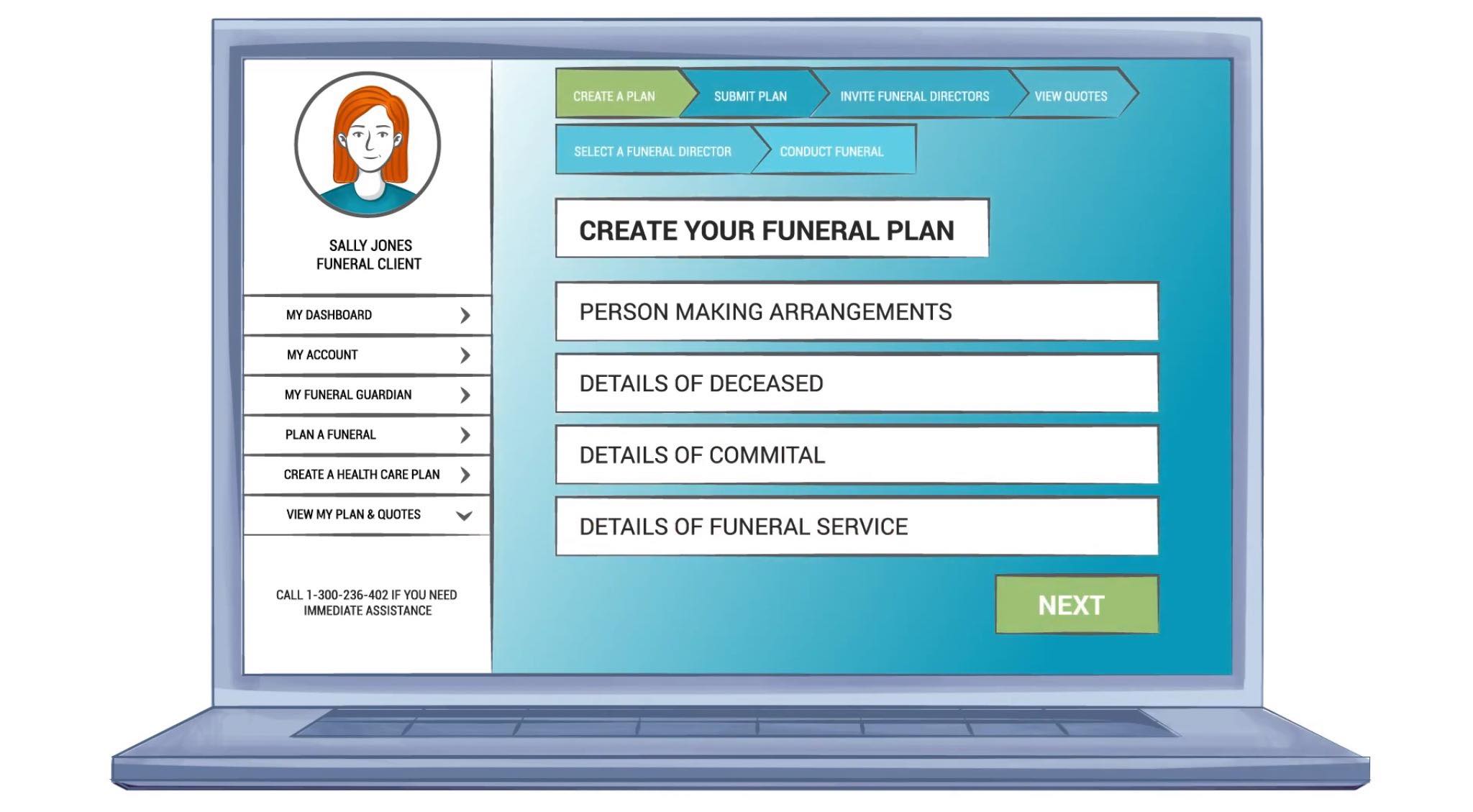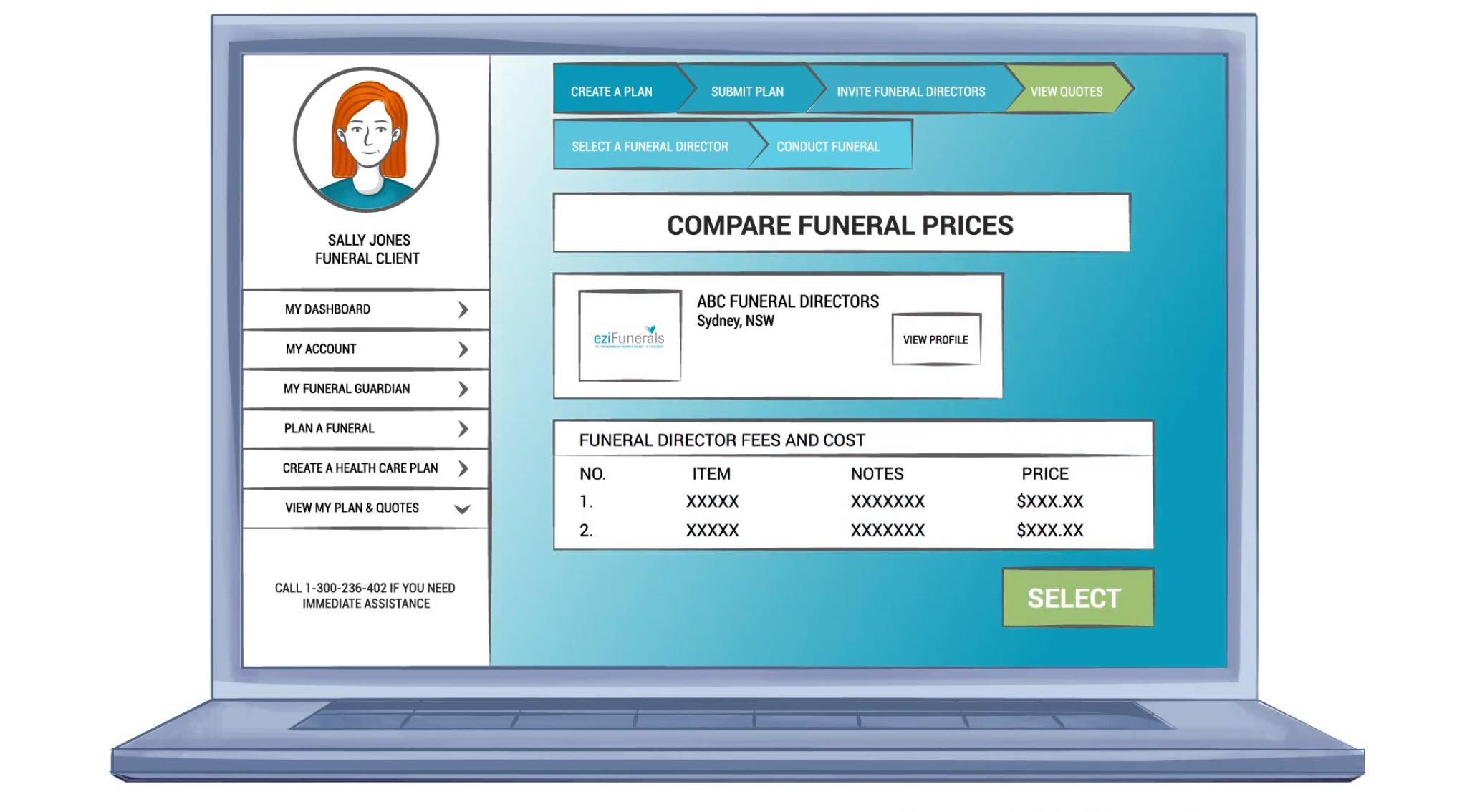THE DEATH OF A LOVED ONE is a difficult time for everyone. For most of us, coping with death and planning a funeral is one of the most difficult things we will ever be asked to do. It can be a very emotional and difficult time. The following information deals with some issues you may face in dealing with death, bereavement and organising a funeral when someone dies.

When someone dies at home
When someone dies at home, the first thing you need to do is call the doctor who has been caring for your loved one. He/she will need to come to the house and sign a Medical Certificate of Cause of Death before you notify a funeral director. If they pass away overnight, they may still stay in bed until the next morning, when the doctor can be called.
A medical certificate of cause of death is an important legal document. The completion of death certificate by a legal practitioner is a vital part of the notification process of death to the Registrar of Births, Death and Marriages in the relevant state or territory. It enables an authority to be provided to the funeral director to arrange the disposal of the body.
It is the funeral director who will transfer the body to the funeral home. Your friend or loved one will be in good care and in many cases you will be able to see them again at the funeral home.
When someone dies in a hospital or nursing home
When someone dies in the hospital or nursing home, the nurse will disconnect any machines and remove medical and other equipment.
Staff can help you with the arrangements and will often contact your chosen funeral director on your behalf. Make use of the rooms they have available for you and other loved ones to gather in.
Don’t feel rushed and DO accept support offered by the hospital’s health professionals. They are experienced in situations like this and can often be some of the best people to turn to. When you and your family’s ready, your friend or loved one will be taken from the hospital bed to the mortuary. They will then usually be transferred to the premises of a funeral director. This may not happen immediately; it might happen the next day.
When someone passes away suddenly or traumatically
The coroner’s office is responsible for investigating unexplained deaths. In Australia, each state or territory has its own coroner’s court responsible for these investigations.
Usually, a police officer or medical professional will inform the coroner of what is known as a ‘reportable death’; a death that may require investigation.
After the death is reported to the coroner, they will decide whether or not to investigate. If you feel that the death is reportable but you are not certain that it has been reported, you can do so yourself by contacting your local coroner’s office.
If the coroner is involved in the case of an unexplained death, coronial staff will transfer the deceased from the place of death to the corner’s premises. An autopsy may be required to find out why the person died.
When someone passes away overseas
When someone passes away overseas and you wish to bring the body back to Australia, you need to notify AQIS or Australian Quarantine and Inspection Service first.
It is possible to do some of the transportation organising yourself, but it requires extensive planning. You will need to obtain an overseas death certificate and complete importation papers. For health reasons, the body will need to be embalmed overseas and returned to Australia in an outer coffin or crate suitably prepared for transportation. You may also need to check that the container meets any specific airline requirements. Non-embalmed bodies will only be accepted in exceptional circumstances.
Given the time constraints involved, it is more common for arrangements to be carried out by funeral directors liaising between Australia and the overseas country involved.
The situation is similar when transporting a body overseas for burial or cremation. Particular care must be taken with the documentation; certain documents must be lodged here and others must accompany the body. Health regulations concerning the transport container will vary from country to country, but are generally as strict as those associated with bringing a person’s body back to Australia.
The transportation of cremated remains is generally the easiest and least expensive option. However, the container used to hold the ashes must be free from contaminants such as soil. If the container is made from wood, it must be also declared upon arrival so AQIS can inspect the container.
What happens next? Who shall we contact? Who can we trust?
Following a death, people are in a vulnerable state and find it difficult to make decisions when planning a funeral. That’s where eziFunerals can help.
We’ll guide you through the funeral planning process, allowing you and your family to focus on what’s important rather than making arrangements in a sales focused environment. We’ll provide you with independent and transparent information to help you understand your funeral rights so you can have meaningful involvement in the whole funeral experience. We’ll provide you with practical advice on how you can make informed decisions with your family and guide you through the funeral process every step of the way.
Planning a funeral through eziFunerals could save hundreds or even thousands of dollars by selecting an INDEPENDENT funeral home as well as improving your overall satisfaction with the funeral services you receive.
Once you have selected a funeral director to complete the funeral arrangements, they will collect all the information required for registering the death and send it to the relevant state or territory government office. In most States and territories, this office is called the Registry of Births, Deaths and Marriages.
A copy of the Death Certificate is usually arranged for the next of kin by the funeral director. If a funeral director is not involved with funeral arrangements, the person who manages the final arrangements for the deceased is responsible for registering the death.
It is also advisable to:
- Make sure everyone who needs to know is told
- Try to find out whether a will has been made
- Arrange to see the deceased’s solicitor and read the will as soon as possible
- Seek help and support if you need it.
For more information and advice visit eziFunerals for all your funeral planning needs.

About eziFunerals
eziFunerals supports individuals and families cope with end of life decisions, death and funerals. We are an independent, Australian-owned and operated company, and are not a subsidiary of any other corporation. We are not part of any other funeral company.





